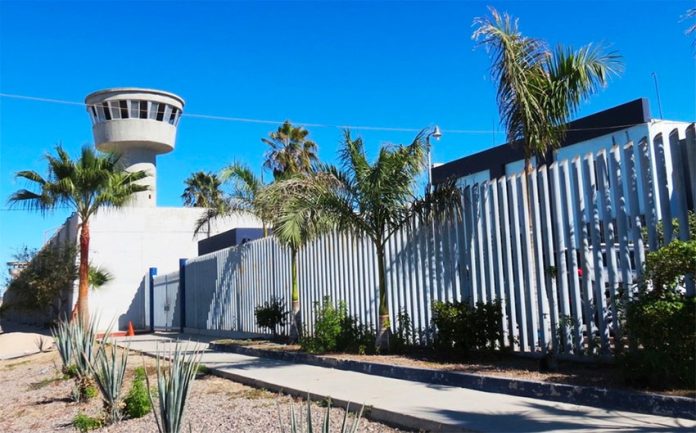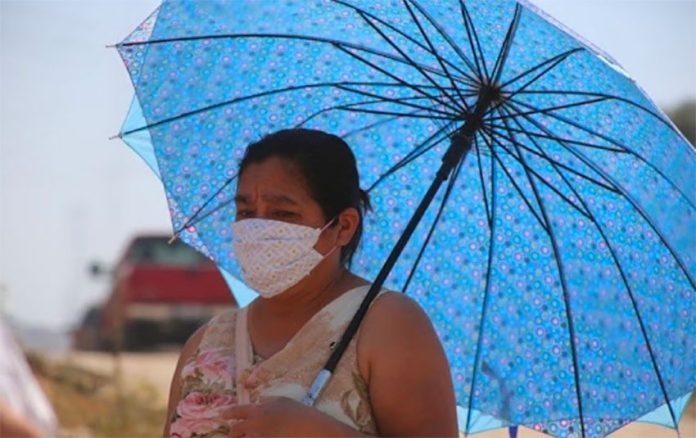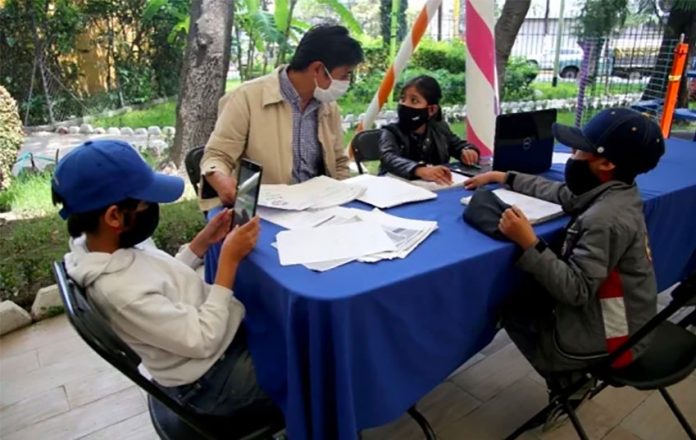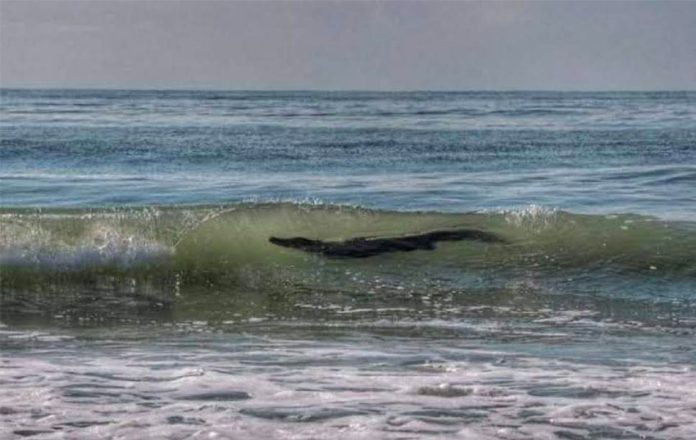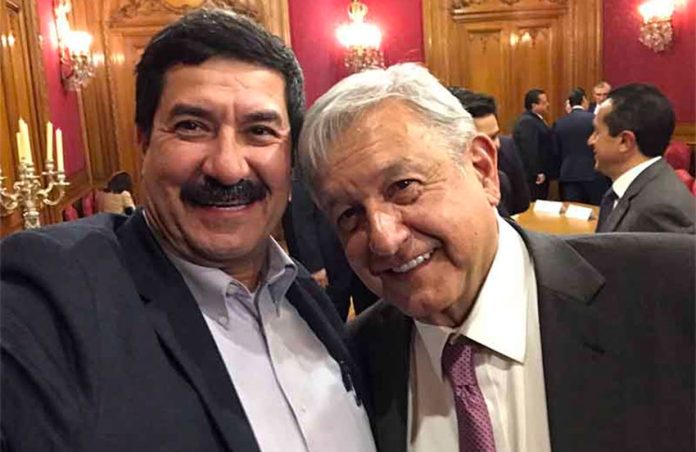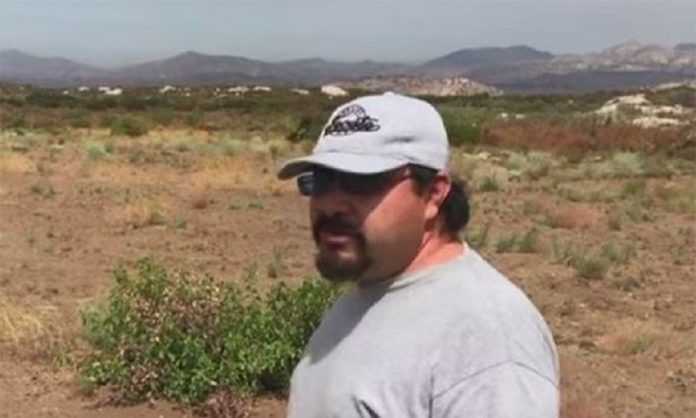Twenty-one inmates have tested positive for the coronavirus at the La Paz penitentiary in Baja California Sur (BCS). The outbreak at the prison was detected after one inmate presented symptoms.
Tests were then applied to 50 inmates, revealing that 16 men and four women had also been infected.
All are stable and in isolation, authorities report, and sanitary measures are being stepped up with testing to begin soon on staff at the state prison.
Family members of the sick were informed and inmates were permitted to speak with them via video call.
These are the first cases reported in the BCS prison population since the pandemic began six months ago, Debate reports.
• For those not behind bars, polymerase chain reaction (PCR) tests for the coronavirus, which are thought to be the most accurate, can cost up to 11,000 pesos (US $492) in notoriously expensive private hospitals in Los Cabos.
In La Paz, laboratories offer the Covid PCR test for 950 to 1,300 pesos (US $42 to $58), according to BCS Noticias.
• According to the Ministry of Health, BCS has experienced 26.8% more deaths than expected this year due to the coronavirus, a figure substantially lower than the national average excess mortality rate of 32.4%.
Aurora Rebolledo, an epidemiologist at the National Institute of Public Health, explains the term: “Excess mortality is a term used in epidemiology and public health that refers to the number of deaths, from all causes, during a period of time when registered deaths go beyond the statistical projections in a year under normal conditions due to an unforeseen health event,” she said.
Between January and August, 1,344 deaths from all causes were expected, but 1,678 death certificates have been issued thus far, Diario El Independiente reports.
As of Thursday, BCS had registered 9,809 confirmed cases of the coronavirus which has caused the deaths of 445 people.
Betting on a tourism rebound
Despite devastatingly low tourism numbers due to the coronavirus in BCS, seven new luxury hotels are being planned in Los Cabos.
While still in the initial stages of development, the Los Cabos Tourism Trust says the projects are for luxury, boutique hotels with fewer than 150 rooms each, representing investments totaling US $300 million, Diario El Independiente reports.
Currently, construction is underway on 1,000 new hotel rooms in the area and tourism experts are banking on near-2019 numbers in the coming months.
State tourism official Luis Araiza López says he expects to see 60% hotel occupancy beginning in November when the high season normally kicks off. That’s just 10% under the occupancy rate during that time period last year. In August, hotel occupancy averaged 23%.
And American Airlines has announced that it will be flying seasonal routes from Phoenix and Dallas to La Paz and Loreto beginning in December. La Paz-Dallas and Loreto-Dallas routes will be served by a weekly flight, the La Paz-Phoenix route will fly three times a week and Loreto-Phoenix four.

Mourning a legend
The owner of Hotel Serenidad in Mulegé, Don Johnson, passed away on September 15 at the age of 94.
Johnson first visited Mulegé in 1959 and bought the Hotel Serenidad in 1968, putting in an airstrip nearby for the convenience of his guests, which included Fred Astaire, Charles Lindbergh, James Arness, John Denver, Olivia Newton-John, and in particular John Wayne, who became a good friend.
He also served as U.S. Consul in BCS for 13 years and was known as a true ambassador for the state due to his gregarious nature. He was also known for his Saturday night pig roasts and stiff margaritas, Discover Baja reports.
His family, including daughters Diana, Sandra, and Sara Laura, will continue to operate the hotel and are looking to make upgrades.
Missing
The head of the State Commission for Missing Persons, Lizeth Collins, says that in 2020 84 people have been reported missing, 19 of whom have been found alive and two who were found dead.
Collins says a majority of those cases are in Los Cabos (48), followed by La Paz (22), Comondú (11) and Mulegé (3), BCS Noticias reports.
Booked
A soldier who is accused of firing shots in the air at a restaurant-bar in La Paz will await trial from a jail cell, a judge has decreed.
The crime occurred September 16 at a bar on 16 de Septiembre Street where a lieutenant identified as Fernando got into a dispute with restaurant personnel, allegedly over their refusal to serve him more alcohol. He ended up firing his pistol in the air a number of times both inside and outside the restaurant. No one was injured in the incident.
Cemeteries vandalized
Vandals hit the old cemetery in Cabo San Lucas which overlooks the Sea of Cortés and the famous arch, vandalizing various tombs and even stealing maintenance workers’ cleaning equipment, Los Cabos director of public services Roberto Sandoval reports.

The vandals struck in the past week, Sandoval said, and most likely at night as there is no night watchman. Cleaning crews have already repaired most of the damage.
The Jardines de Recuerdo cemetery in La Paz has also seen better days. A recent tour by Diario El Independiente showed an unearthed and empty coffin lying haphazardly over tombs overgrown by weeds.
There was no indication as to whom the coffin belonged nor what became of the occupant.
Cemeteries in BCS have been closed since May except for brief burials.
Mexico News Daily
